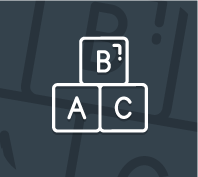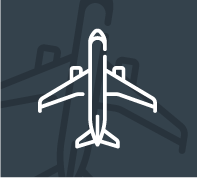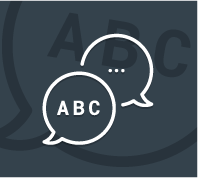If you don't have time to read this article but would like to know whether our software can help - it can. You can buy access to our software and get started immediately, 365 days-a-year.
Buy Preparation Software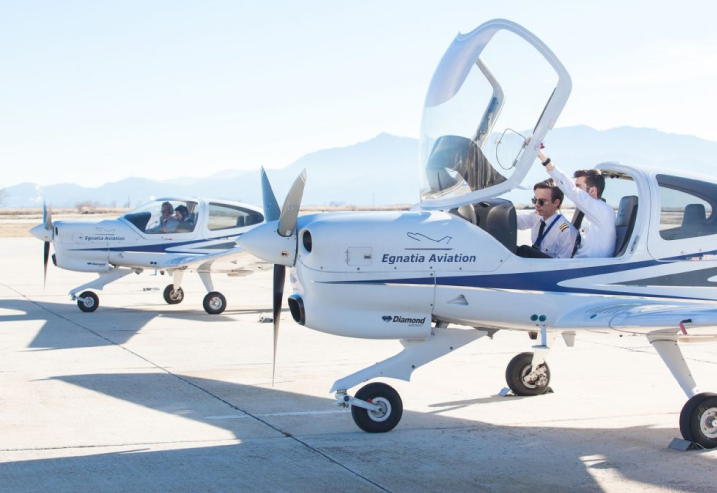
Founded in 2006 and ranked within the top five commercial flight training organisations in Europe, Egnatia Aviation, operating from Greece, has provided training for more than 2,500 pilots, of which over 65% are from international backgrounds.
The organisation offers a flagship Airline Integrated Course alongside a variety of other training options for professional pilots such as APS MCC, a PBN course and an Advanced UPRT course.
Training in the air is facilitated by a mixed fleet of Diamond DV20, DA20, DA40, DA42 and Aero AT-3 aircraft, and is supplemented by ALSIM ALX and ALSIM AL-250 simulators.
The Egnatia Aviation assessment and selection process includes three stages:
Click any stage to scroll to the relevant part of this Knowledgebase article, or continue reading below.
A competency-based Interview is a type of interview that permits an individual or organisation evaluating the applicant to quickly and easily assess the candidate's abilities, attitudes and personality.
During the assessment of pilot candidates, due to the competitive nature of the profession and subsequent high numbers of applicants, competency-based interviews are heavily employed.
In a competency-based interview, a series of questioning is used that enables the candidate to demonstrate their experiences and actions which indicate abilities, attitudes and personality which may be suitable for the role that they're applying for - e.g. a position within a cadet scheme, or as a First Officer in an airline.
In flight training organisations such as Egnatia Aviation, these types of interviews are often employed due to the candidate's lack of role-related experience.
Due to their lack of role-related experience, these interviews provide the candidate with an opportunity to demonstrate how they have approached situations, pursuant to their attitudes and personality, or utilised their abilities to identify and resolve problems in the past.
When demonstrating their abilities, attitudes and personality, the individual or organisation evaluating the applicant may then easily assess their suitability for the role of a professional pilot, or in this case, to embark on a training program with the flight training organisation.
When assessing applicants for their professional flight training courses, a flight training organisation like Egnatia Aviation may choose to incorporate questioning on the following competencies in their competency-based interview:
- Aviation Knowledge
- Problem Solving and Decision-Making
- Motivation and Commitment
- Communication and Teamwork
Questions that may be asked during a competency-based interview which can help an applicant to demonstrate their competencies in the above areas can include:
When preparing for a competency-based interview within any industry, the most commonly offered advice is to utilise the STAR Technique, which is a method of constructing and articulating a response that satisfies the questioning posed to the applicant.
The STAR Technique aids in structuring responses to competency-based interview questions, and consists of the following structure:
- Situation
- Task
- Action
- Result
Each of the four parts of this structure enable applicants to provide an answer which satisfies a question posed, helping them to effectively and easily demonstrate their abilities using a real-world example.
Below is an example of how the STAR Technique may be used to answer a question posed in a competency-based interview.
Computerised pilot assessments (often also referred to as 'Computerised Pilot Aptitude Tests') are those assessments designed to evaluate the competencies required of a professional pilot and typically take the form of a series of separate tests (known as a 'Test Battery') undertaken either on-site at a facility, or remotely using a desktop or laptop computer.
These assessments differ from other types of aptitude tests used in other industries, typically aiming to evaluate competencies (or skills) such as Multi-Tasking, Motor Skills, Reaction Time, Spatial Awareness and Memory Recall.
Evaluation of the above competencies is often achieved using a variety of different methods and mechanisms - for example, memory recall may be assessed with a task to memorise and recall information displayed on screen, whereas multi-tasking may be evaluated by asking the candidate to perform multiple concurrent tasks using a keyboard and mouse, or motor skills may be appraised by asking the candidate to center a ball within a targeted area using a joystick.
In some cases, the candidate may be required to undertake two attempts of each test, or to undergo a Verification Test some time after completing their original pilot assessment.
On completion of assessment, a candidate's score may be compared to that of other candidates who have previously undertaken the assessment (known as Norm-Referencing) or, their scoring may be assessed against a defined criteria or pass mark (known as Criterion-Referencing).
Egnatia Aviation incorporate a computerised pilot assessment produced by Aon (Cut-E) in to their selection process.
This pilot assessment is undertaken remotely, completed by the applicant in their web browser in the comfort of their own home.
In particular, this assessment is constructed of a Test Battery which can include modules referred to as Complex Control, Ability to Concentrate, Sense of Direction and Deductive Reasoning amongst others.
Shown below are depictions of those modules incorporated in to Aon (Cut-E) pilot assessments:
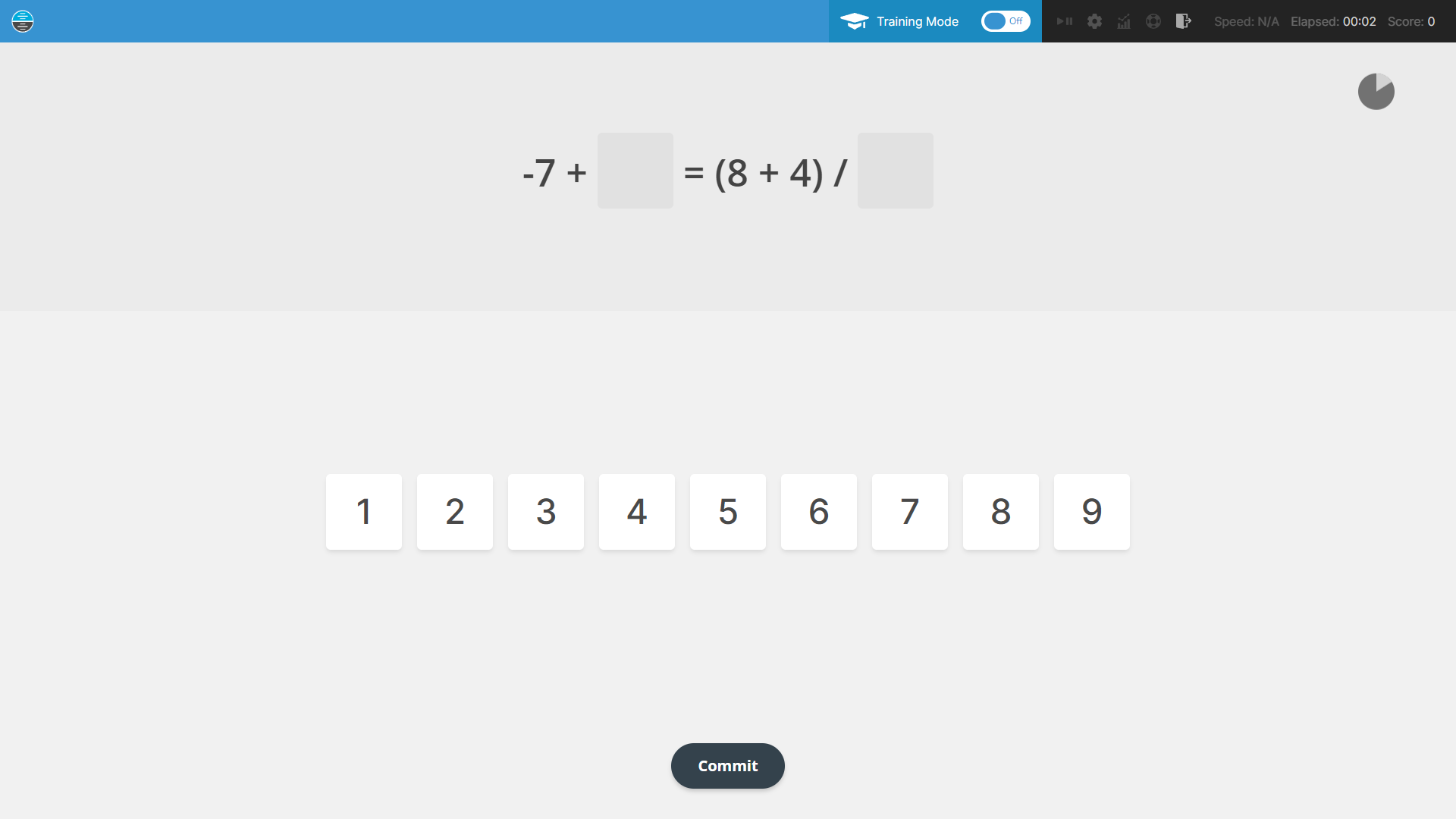
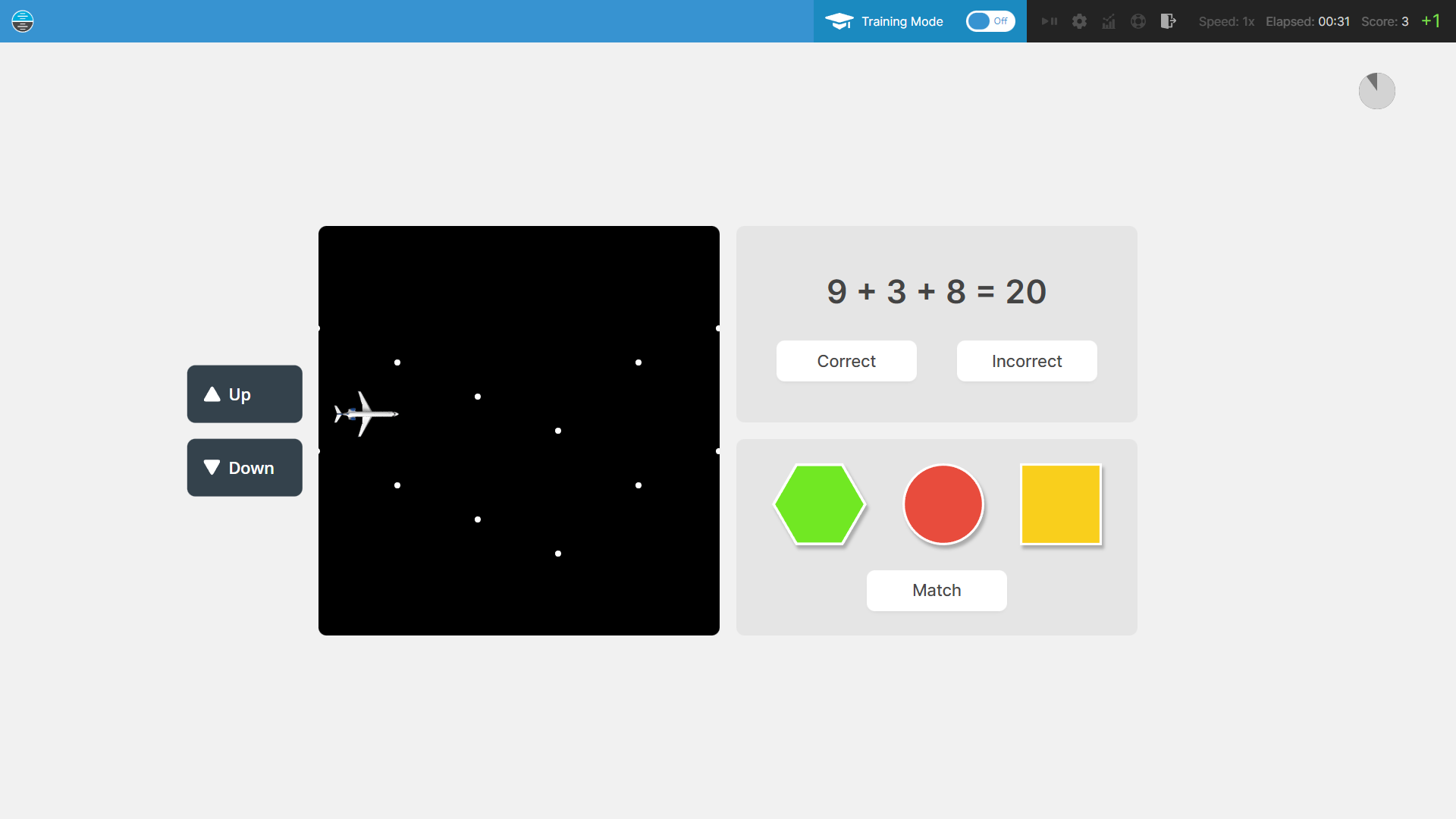


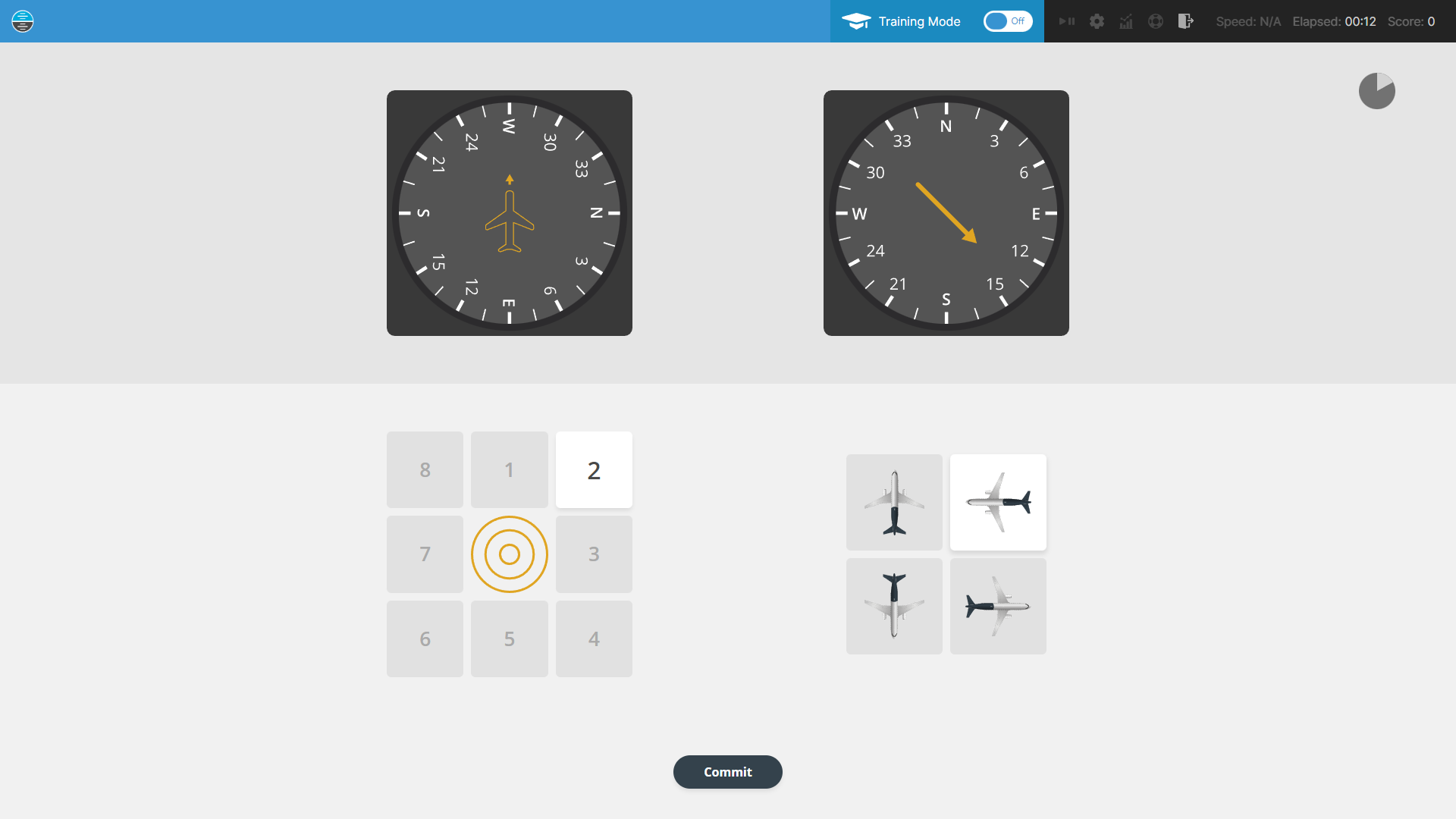

To prepare effectively for this part of the Egnatia Aviation selection process, it is recommended to both familiarise yourself with the methods and mechanisms employed, and to improve those competencies which are evaluated, in the Aon (Cut-E) computerised pilot assessment.
Our software provides realistic simulations of this assessment contained within a section dedicated to Egnatia Aviation, accompanied by Explainer Videos, Visual Walkthroughs as well as the provision of detailed feedback regarding your Performance, and how it compares with other applicants.
To further your preparation, it is also recommended to create a Preparation Strategy specific to this assessment using the CoPilot Wizard and establish Targets to be achieved prior to undertaking evaluation.
Those individuals operating successfully as pilots require a specific set of personality traits that are well-suited for the demands of the job, such as decisiveness, composure under stress, risk-assessment abilities, and strong communication skills.
Comprised of a large number of questions with theoretically no correct answer and often completed within an hour, personality tests can help identify whether a candidate exhibits the 'right stuff' for a piloting career, helping to evaluate different aspects of personality and providing insights into how well the candidate may perform in their future profession as a pilot.
A variety of models exist, both new and old, which may be used to analyse and understand those personalities of candidates who are embarking in flight training as well as within other roles in other industries.
Models of contemporary personality testing share considerable similarity with those models which were devised many years before, with those newer models of testing building on the successes of, and enhancing the areas of evaluation achieved by the older models.
Common models of testing used in the assessment of pilots can include:
- Five-Factor Model (FFM)
- Myers-Briggs Type Indicator (MBTI)
- NEO PI-R*
- Checklist Personality Profile (CPP)*
- ADEPT-15*
- APQ*
Note that those models displayed with asterisks rely either fully, or partially, upon modelling provided by the Five-Factor Model and the Myers-Briggs Type Indicator for evaluating personality traits.
Whilst a variety of differing personality traits can be found in a modern flight deck, a report produced by NASA (National Aeronautics and Space Administration) in 2024, which studied the personalities of over ninety professional pilots using the NEO PI-R evaluation model, explained that there are a number of common traits shared by a considerable majority of individuals.
In particular, it was noted that pilots seemed to be extroverts, displaying assertive behaviour and seeking excitement, and that they remained calm, even in stressful situations.
Additionally, it was found that pilots were considered to be conscientious, displaying high levels of self-discipline, were achievement-orientated and avoided impulsiveness.
It is not advised to attempt to fool or manipulate a personality test undertaken during a selection process such as that employed by Egnatia Aviation or other flight .
Intentionally changing those answers you provide during evaluation of your personality in an attempt to modify results of the assessment is considered to be reckless, dishonest and illustrates a lack of integrity in the applicant.
Instead of attempting to manipulate a personality test, it is recommended that applicants approach personality tests with honesty and self-reflection, providing accurate responses that genuinely represent their personality traits and characteristics, thus enabling a flight training organisation such as Egnatia Aviation to make a well-informed assessment of suitability for the role of an airline pilot.
When preparing to engage with the Egnatia Aviation selection process, consider the following tips to ready yourself for the group exercise:
- Familiarise yourself with the different types of personality tests commonly used, such as the MBTI and FFM.
- Take time to honestly assess your own personality traits, preferences, and tendencies.
- Consider how you typically behave in different situations, how you make decisions, and how you interact with others.
- Ask trusted friends, family members, or colleagues for their honest observations and feedback about your personality traits.

With a section dedicated to the Egnatia Aviation Assessment, our one-of-a-kind software represents the ultimate way for you to get prepared.
By leveraging our cutting-edge software, including those unique features and extensive guidance not offered elsewhere, you can immerse yourself in realistic simulations, master those competencies assessed, and familiarise yourself with the methods and mechanisms of assessment.
Our software is backed by our meticulous attention to detail and deep expertise as experienced commercial pilots, empowering pilot applicants to approach their assessments with confidence and helping to propel them to supersonic levels of success.
Start using our incredible preparation software immediately on PC, Mac, iOS and Android by purchasing a subscription:
Buy Preparation SoftwareWith increasing prevalence and awareness of computerised pilot aptitude testing in pilot assessments, it's never been more important to ensure that you can fly past the competition. This is made easy with features unique to our software:
Discover the key advantages of using our cutting-edge software:
How can I prepare for my Egnatia Aviation pilot assessment?
The best way to prepare for your Egnatia Aviation pilot assessment is with our latest industry-leading software, developed over 5 years by experienced airline pilots. Including over one-hundred realistic exam simulations, personalised Preparation Strategies which guide you through your preparation, immersive Explainer Videos, customisable Training Modes that manipulate your simulation environments, comprehensive Instruction and Guidance, and extensive performance feedback which incorporates unique features such as Predictive Scoring, a Strength & Weakness Map and Colour Coding, our unique software will help you to accelerate improvement of your problem areas and fly past the competition in your Egnatia Aviation assessment. The software runs in a web browser, is compatible with laptop, desktop, tablet and smartphone, and is complimented with extensive support, provided from 9AM to 9PM GMT. To purchase a subscription to our software and start preparing for your pilot assessment at Egnatia Aviation, as well as many other flying schools, click here!
What is the pass mark for the Egnatia Aviation pilot assessment?
Many pilot assessments, and computerised pilot aptitude tests, do not have a fixed threshold (or pass mark), but rather evaluate the pilot candidate's overall performance and suitability for the role. Rather than worrying about a specific pass mark, the better approach is to focus on comprehensive preparation that maximizes your chances of success. Our industry-leading pilot preparation software is designed to help you to prepare for your Egnatia Aviation assessment, regardless of the pass criteria, by helping you to develop the essential sklls, familiarity with assessment and confidence needed to perform at your best. To discuss your preparation with us, please contact us.
How often is your Egnatia Aviation assessment preparation software updated?
Our pilot assessment preparation software is continuously updated, with daily improvements based on feedback from hundreds of monthly users. Developed by experienced airline pilots, the simulations provided within our unique software faithfully reflect all parts of the assessment that you'll undertake with Egnatia Aviation, ensuring that you can trust that our software provides the most current and comprehensive preparation for your upcoming pilot assessment. To see the recent updates to our preparation software, please visit our Updates page.
What support is available with your Egnatia Aviation assessment preparation software?
With our own industry experiences, we understand the pressures and stresses that come with preparing for a pilot assessment. When you use our software to prepare for your Egnatia Aviation pilot assessment, you'll have access to exceptional support and guidance from our team of experienced airline pilots, provided between 9AM and 9PM GMT. This support sets us apart, helping you to develop the skills, knowledge, and confidence needed to approach your assessment feeling completely ready to demonstrate your true potential and fly past the competition.
How quickly can I prepare for my Egnatia Aviation pilot assessment with this software?
If you anticipate being invited to a pilot assessment with Egnatia Aviation, you may start using our software within as little as a few minutes. We offer access to our preparation software for 7 days, 1 month or 3 months, and provide the opportunity to purchase additional time. This ensures you can work through the comprehensive simulations, and benefit from our guidance at your own pace, with support available whenever you need it. To get started, choose a subscription duration to our preparation software, create an account and complete your purchase - then, login and get preparing! This process typically takes between 2-3 minutes and payment made by credit or debit card is securely processed with Stripe or PayPal.
Feature-packed and one-of-a kind preparation software for your assessment.
Regularly updated, realistic and infinite simulations of aptitude tests.
Instant activation, fast support and uniquely in-depth guidance.

